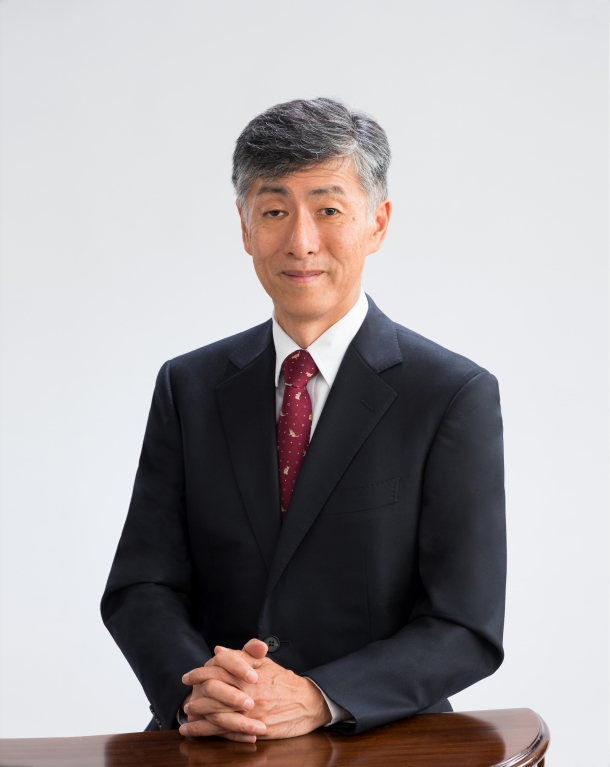From the Dean
The Waseda University School of Education and the Waseda University Faculty of Education and Integrated Arts and Sciences
 Kenji Hashimoto , Dean of the School of Education
Kenji Hashimoto , Dean of the School of Education
Waseda University’s School of Education, together with the Graduate School of Education, the Institute for Advanced Studies in Education, and the Teacher Education Center, belong to the Faculty of Education and Integrated Arts and Sciences. In addition to faculty members engaged in education and research at the School of Education, the Faculty of Education and Integrated Arts and Sciences also includes faculty members engaged in research and education at the Graduate School of Education’s Department of Advanced Teaching Practice, which is a professional graduate school. Some of the faculty members of the Department of Science and the Department of Mathematics belonging to the Faculty provide research guidance in the Graduate School of Fundamental Science and Engineering, the Graduate School of Advanced Science and Engineering, and the Graduate School of Creative Science and Engineering, and some of the faculty members of the School of Humanities and Social Sciences also provide research guidance in graduate schools belonging to other academic departments in the university. The name “Faculty of Education and Integrated Arts and Sciences” expresses the academic diversity of the Faculty, which is composed of specialists in not only pedagogy, but also in various humanities and sciences related to various fields of subject education. (For information on the Graduate School of Education, the Institute for Advanced Studies in Education, and the Teacher Education Center, please refer to their respective websites.)
Waseda University, School of Education -- The School of Education that does not Require a Teaching License
Waseda University’s School of Education was established in 1949 as the first School of Education in a private university, based on the former Waseda University Higher Normal School established in 1903. Unlike many faculties of education in other universities, the School of Education does not require students to obtain a teaching license for graduation. Unlike other schools of education, such as those at former imperial universities, where the objective is research and education in pedagogy, the Waseda School of Education consists of seven departments– Department of Education (Education, Adult and Community Education, Educational Psychology, and Primary Education), Department of Japanese Language and Literature, Department of English Language and Literature, Department of Social Studies (Geography and History, Civil Society and Citizenship Studies), Department of Science (Biology, Earth Sciences), Department of Mathematics, and Department of Cultural Sciences–so as to offer a variety of specialized courses related to each subject area of elementary and secondary education and language education, as well as the latest achievements in diverse academic fields.
In addition to obtaining a teaching license and becoming a teacher, students can acquire knowledge related to “education” in the broad sense of “investigate, learn, think, teach, and communicate,” as well as highly specialized academic knowledge, and acquire the ability to contribute to society at large and to the development of academics. The program is designed to provide students with the ability to contribute to society at large and to the development of academics.
Facing a Changing Society through a Dispassionate and Analytical Eye
The activity of education is not something that can be completed in just schools. Society at large, including corporations, can be considered a teaching ground. In addition to imparting knowledge, it is important to convey the “joy of learning”. Education is primarily an activity to nurture human beings, but it also faces the realization of a better society by inheriting legacies from the past and creating new ones. Society is now facing major and diverse changes and challenges, including increasingly serious global environmental problems, pandemics caused by infectious diseases, and frequent conflicts and food problems around the world, which have shaken conventional wisdom and solutions. It is precisely these chaotic times that are making stronger the social demand for education that involves a dispassionate analysis of social issues and nurtures the next generation, and there are greater expectations on those who can carry out such an education.
Waseda University’s School of Education has produced graduates who have been active in a variety of fields, including education, general business, publishing, mass media, government, and municipal offices, and research institutions such as universities, as well as in the arts such as literature, fine arts, and drama, and in sports. The School of Education, which does not specialize in teacher training, is a place where students who aspire to become teachers and students who choose a career path other than teaching can study together while being exposed to a variety of academic fields. The School of Education at Waseda University has been able to send graduates to various fields of society armed with extensive education, high academic knowledge, and rich humanity with which they can tackle various issues of contemporary society. Together with the Graduate School of Education, the Graduate School of Education, Institute for Advanced Studies in Education, and the Teacher Education Center, all of which belong to the same Faculty of Education and Integrated Arts and Sciences, we intend to continue to play this role, while pursuing and developing new possibilities for the future.
Kenji Hashimoto:Geography and History, Department of Social Studies.Human geography.
